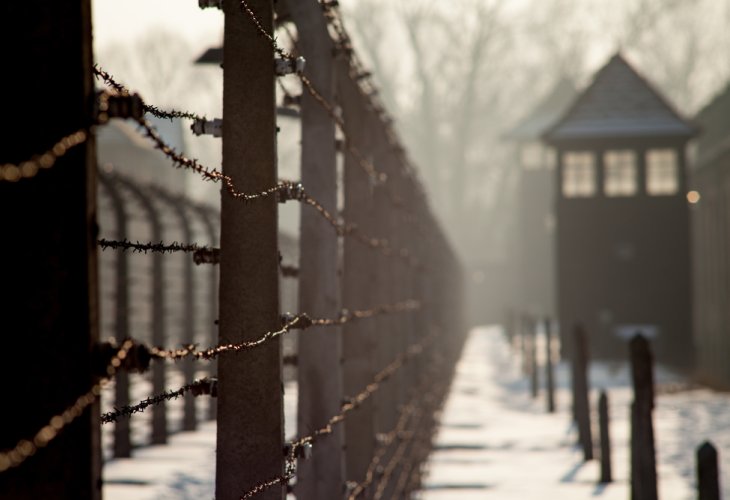Faith
The Holocaust as a Divine Surgery: How Faith Sees Light in Absolute Darkness
Viewing God as a compassionate Father transforms the way we understand suffering, resilience, and the eternal strength of the human soul
 (Photo: shutterstock)
(Photo: shutterstock)Rabbi Chaim Kanievsky once shared a story he heard from the esteemed Rabbi Shmuel Halevi Wosner: After World War II, when the devastating horrors of the Holocaust became known, people approached the Chazon Ish (Rabbi Avraham Yeshaya Karelitz) and asked, how could such atrocities happen to our people? In response, the Chazon Ish uttered a single, poignant sentence: “Only a merciful Being like the Creator could perform such a surgery.”
What did he mean by this? Rabbi Nissim Karelitz, the Chazon Ish's nephew, explained with a profound analogy: Imagine a father whose beloved son needs to have a dangerous growth removed from his body. However, due to medical complications, the boy cannot be anesthetized. No surgeon, no human being, could bear to cut into living flesh while the child is fully conscious, screaming in pain. Only the father, whose love and mercy are infinite, could summon the strength to perform the surgery, because he knows it is the only way to save his son’s life.
The Chazon Ish was teaching that the Holocaust was a painful, unfathomable surgery on the body of the Jewish people, one that could only have been performed by a Merciful God who sees beyond physical suffering to the eternal life of the soul. Only God, who knows the infinite value of the soul compared to the fleeting nature of the body, could bring Himself to “harm” the body in order to heal and elevate the soul.
Seeing God as “Our Father” vs. “Our King”
There are those who see God only as a distant King, and when tragedy strikes, they cry out in anguish: “Where is God? Where is His mercy?” Those who perceive God as a compassionate Father—“Avinu Malkeinu” (Our Father, Our King), understand that even the harshest judgments stem from divine love and mercy. The Chazon Ish's perspective reframes suffering as an act of parental love, although it is beyond our human comprehension.
"I Lost Everything — But I Didn’t Lose God"
A living example of this faith was Rabbi Yekusiel Yehuda Halberstam, the Klausenberger Rebbe. He endured the full inferno of the Holocaust, surviving Auschwitz, Dachau, and other death camps. He lost his wife and eleven children, all murdered in sanctification of God’s name. Yet, despite his unimaginable personal losses, he emerged from the Holocaust with unshaken faith, dedicating his life to rebuilding Torah and acts of kindness.
Upon liberation by the American army, the Rebbe immediately resumed his work as a spiritual leader. He didn’t retreat into grief but became a beacon of hope, restoring faith in thousands of broken souls. He rebuilt Jewish communities, founded orphanages, established schools, yeshivas, and later the Laniado Hospital in Netanya, Israel — a project that was unprecedented in scope and required superhuman determination. He even authored a seven-volume collection of halachic responsa.
The Rebbe once explained the source of his strength: “I lost my family, I lost everything — but I did not lose God.”
The Divine Perspective on Suffering
The Klausenberger Rebbe is one among countless Jewish leaders who lost their families during the Holocaust yet refused to let their spirits break. They rebuilt, rejoiced in life again, and continued to serve God with unwavering dedication. How did they withstand such overwhelming darkness? The answer is rooted in their faith that only a merciful God could orchestrate such a “surgery” — one that mortals cannot fathom.
The Rebbe often said: “There’s not a single Jew from the Holocaust who doesn’t have a sack full of miracles to recount, even amidst the horrors.” This faith — to see sparks of divine light within the thickest darkness, is what empowered survivors to continue, to rebuild, and to believe.
How God’s View Differs from Ours
Humans are made of both body and soul, and yet, most people see their body as primary and react with extreme distress over physical or material losses, while spiritual neglect or soul damage rarely elicits the same alarm. For example, a person might be devastated if his car is damaged or if he injures his leg, but remains indifferent if he skips prayer or hurts another person’s dignity.
God’s view is the reverse. The Creator sees the soul’s pain as paramount and focuses on its healing and rectification, even if that means allowing the body to endure hardship. Therefore, God is willing to inflict physical suffering, when necessary, to preserve and uplift the soul.
Just as a father might refuse to give his irresponsible child a bicycle, fearing the child’s safety, God acts based on the true essence of our needs, not our immediate desires or limited understanding.
Only a Merciful God Could Perform This Surgery
Though we may not understand it, the Holocaust was a “surgical operation” of the most severe kind, that could only be performed by a Merciful Creator, for purposes that transcend this world. It’s a perspective that reframes suffering not as divine cruelty but as an act of infinite mercy, seen from the vantage point of eternity.
For those who perceive God as a Father and not only a King, the question isn’t “Where is God?” but rather “How can I trust Him even in this?” This faith gives meaning to suffering, strengthens shattered hearts, and allows the Jewish people to rise from the ashes time and time again.

